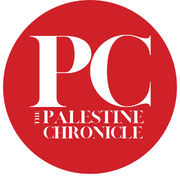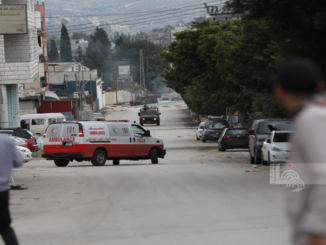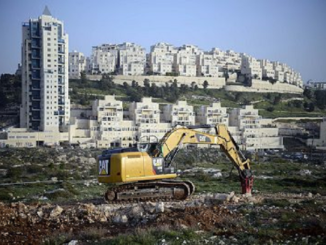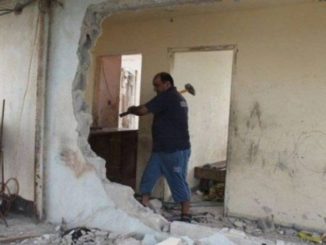
By David Harrop
Through meeting and talking to Palestinian social work colleagues it seems that for many, the coming together of communities during the first intifada (1987-93) represented a formative professional experience. Whilst under extreme duress people had found the emotional, psychological, and political experience of communal resistance.
Many practitioners have sought to take the long view and to see how the spirit of the intifada can be carried forward across generations. They see it as a means of claiming an authentic Palestinian identity through the struggle for liberation, feeling that you don’t know who you are until you struggle for it.
It is through this struggle that you can find the values which you hold dear. Whilst the political, economic, and social landscape is subject to changes, the spirit of the intifada and resistance remains, and is located within core beliefs and principles. These are touchstones for progressive communal activities. In discussion with colleagues, they identify this principle as Ownah.
“We see Ownah as an obligation based on a principle. It is where the community comes together to help those who do not have the individual capacity or resources to accomplish their needs. (Z., Palestinian Social worker, 2022)”
This is viewed as a traditional collaborative Palestinian principle that is believed to be historically embedded in traditional society and underpins collective resistance. Whilst many local mutual aid projects around the world share this principle, the Palestinian experience appears to embrace this into activities of resistance.
In grassroots social work projects, much of the activity is created and delivered through the engagement of community-based volunteers who are actively engaged with this collectivist principle. Hence there are many enthusiastic young people who are engaging with projects and seeking to use them as platforms for their own community-based activism and creativity.
Last month yet another of the young volunteers of a project in Bethlehem had been killed by soldiers entering the camp There was a somber online vigil held by the project where one witnessed the loss and grief of his family and peers. In recent years he had been supporting and enabling the creativity of other young people, mainly through his interest in filmmaking. Sadly, his martyrdom is not an isolated event, and there is a much-graffitied table in the kitchen of the project which has scratched names of several other volunteers who have also violently lost their lives and have become martyrs to the cause of liberation.
In writing about the first intifada, Al Kilani comments on how communities under duress developed networks of localized popular committees (lajanh) to increase community structures and boost the capacity for resilience and bolster the intifada.
Many practitioners and projects sought to deliver essential services and were organized and delivered by people on a voluntary basis. These committees were authentically popular, open, and created wide participation within the community, and represented acts of communal solidarity.
Such activities were delivered locally, without any international external funding. Often, because of their capacity to generate resistance such popular committees became the target of concerted efforts to get them closed and declared illegal.
Many current non-profit grassroots social work activities are dependent upon volunteerism and community participation. They rest upon values of heterogeneity, trust, and interdependence within the community. Critically they are both financially and politically independent from governmental controls, and hence able to retain autonomy and independence.
This collectivist and collaborative energy stands in contrast to the pervasive spirit of individualism which values consumption over participation. In a sense, volunteerism is how the principle of Ownah metabolizes into observable action of community engagement.
The Palestinian grassroots voluntary sector is a significant provider of social service within a segmented state. This not only complements but also stands in contrast to the NGOs and the Palestinian Authority (with limited sovereignty) which can be seen as the providers of essential humanitarian aid to a needy and vulnerable community. However, this aid often creates levels of dependency and can be disempowering Furthermore, this dependency risks maintaining a status quo that normalizes the occupation.
However, the growth of voluntary welfare-ism has the potential to be a process of liberation by causing basic changes in civil society by creating new and dynamic roles for participants. The experience of collectivism and responding to the needs of others is empowering and runs counter to any fragmentation of community.
From this perspective, individuals and communities are valued for what they can contribute rather than consume. Hence, coming together and collaborating strengthens communities and it is the antithesis of passivity and acceptance.
“It draws us together and it is the glue of communities .. No political party or authority can mobilise as quickly or effectively” (Z., Palestinian Social worker 2022)
The West Bank village community of Farkha is a community embodiment of these principles. Here it has manifested into collective mutual aid and participatory democracy. As a community, they have developed systems of self-reliance and it has gained recognition as the first eco-village in Palestine.
The close-knit community is run by several youthful and dynamic committees that want to be free from the restrictive yoke of the P.A. or NGOs. They believe that coming together in this way to build their municipality as a collective village with eco principles has helped to build the steadfastness (Samud) of the community.
The town committee has expanded its model of governance to include the youth of the village. A town councilor describes how the committees are decentralized which has allowed for the growth of trust within the community. This affords the opportunity to bring about levels of change within the community and to develop more inclusivity and with the active promotion of a feminist perspective. Youth have described the village as an “encouraging environment” for them to live in which is future orientated.
Notwithstanding issues of occupation, the community aspires to develop the village based on principles of participation, inclusion, and self-reliance, with the core value of progressive democracy.
Another practitioner from Aida camp in Bethlehem who is active in supporting and enabling youth participation argues that such activity has its own aesthetic, which renders resistance as an action with inherent beauty.
Through this adherence to a core principle of collaborative collective action. Street-based social work projects can function through the practice of volunteerism. This desire to promote and facilitate inclusivity and incorporate it into the activity of the project.
It locates practice within the heart of the community and serves to establish and strengthen critical community ties and identity. In emphasizing the collective spirit, it supports a collective narrative and vision for the community. If you want to empower and build momentum within the community, it is imperative to mobilize individuals and enact collective solidarity.
This is vital, as the wider community finds it hard to stand in solidarity with those who are passive victims, but they find it easier to stand in solidarity with those who are actively finding ways in which to resist. It is important to understand the ways in which resistance is enacted within the community to best enable solidarity.

– David Harrop is an independent UK-registered social worker and co-founder of Palestine UK Social Work Network (PALUK) in 2011. Contact the author at his address email: harrop_david@yahoo.co.uk. He contributed this article to The Palestine Chronicle.







